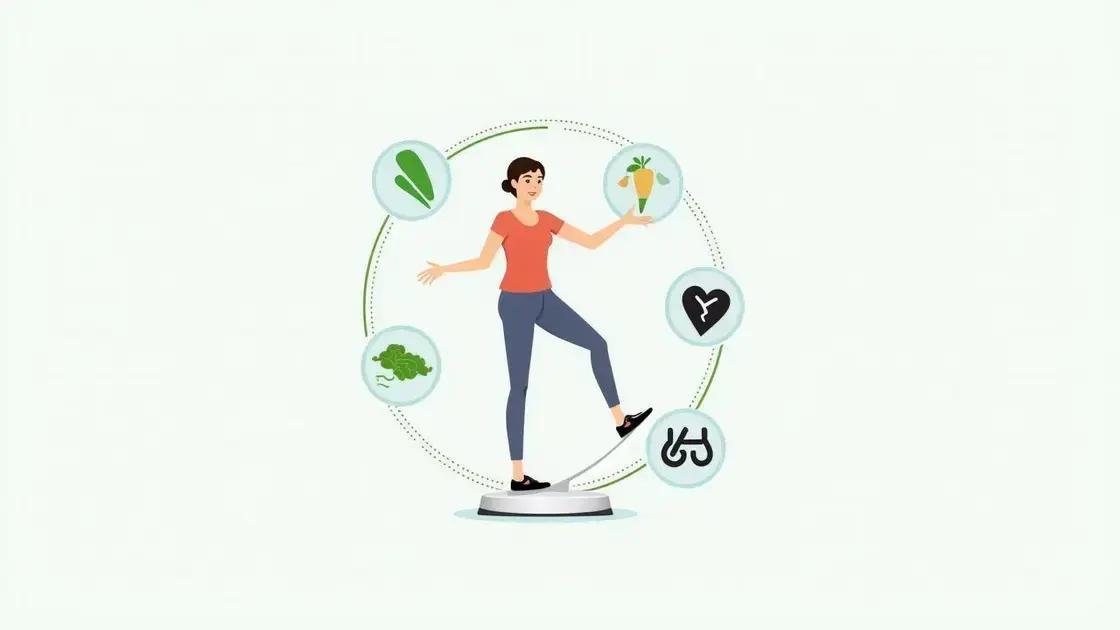The importance of regular weight monitoring lies in its ability to help individuals track health changes, detect potential issues early, and maintain a healthy lifestyle across all ages. By following practical tips and setting realistic goals, weight monitoring becomes a valuable tool for promoting better health and well-being.
Regular weight monitoring is essential for health maintenance, enabling individuals to track their progress and make necessary lifestyle adjustments. By keeping a close eye on weight changes, we can identify potential health risks early and take proactive measures. In this article, we’ll discuss the importance of regular weight monitoring, its benefits, and practical tips for incorporating this practice into your daily routine.
Understanding the Role of Weight Monitoring

Weight monitoring plays a critical role in maintaining our health. It helps us track changes in body weight, which can be crucial indicators of our overall health. By regularly checking our weight, we can quickly identify trends that may need attention. For instance, gaining weight may signal that we need to adjust our diet or increase our physical activity.
Why is Weight Monitoring Important?
Importantly, weight monitoring acts as a preventive measure. It allows individuals to spot potential health issues before they escalate. For example, weight gain can lead to conditions like hypertension, diabetes, or heart disease. Recognizing these changes early gives us a chance to take action and prevent serious health complications.
How Often Should You Monitor Your Weight?
It is generally recommended that individuals check their weight at least once a week. This frequency allows for accurate tracking of changes over time. However, it is essential not to become overly fixated on daily fluctuations, as weight can vary due to several factors, such as water retention or muscle gain.
The Connection Between Weight and Health
Strong connections exist between weight and overall health. Each person has a unique body composition, and understanding your own is vital. Monitoring helps keep us aware of our bodies, enabling us to make informed decisions about diet, exercise, and other lifestyle factors that contribute to our well-being.
In summary, understanding the role of weight monitoring is fundamental in managing health effectively. It empowers individuals to make proactive choices and fosters a deeper awareness of how our bodies respond over time.
How Regular Weight Checks Aid in Health Maintenance

Regular weight checks play a vital role in health maintenance. They serve as a tool to monitor our body’s changes and make necessary adjustments. By keeping track of our weight, we can identify patterns that require attention. For example, unexpected weight loss or gain can highlight underlying health issues.
Detecting Health Issues Early
Early detection is crucial for many health problems. Regular weight checks can help spot issues like obesity or malnutrition. These problems can lead to chronic conditions such as heart disease, diabetes, and other serious health concerns. By monitoring weight frequently, we are more likely to seek medical advice when necessary.
Encouraging Healthy Habits
We are often influenced by the number on the scale. Regular monitoring encourages healthy habits such as a balanced diet and regular exercise. When we see our efforts reflected in our weight, it can motivate us to continue these positive behaviors. It’s a way to hold ourselves accountable for our health choices.
Setting Realistic Goals
Monitoring weight regularly can help set realistic and achievable health goals. Instead of large, daunting targets, we can create smaller, manageable milestones. This approach makes it easier to track our progress and adjust our plans as needed. Celebrating small victories can boost our confidence and keep us motivated on our health journey.
Incorporating weight checks into our routine can result in long-term health benefits. The insights gained from regular monitoring allow us to make informed decisions about our lifestyles, ultimately guiding us toward better health outcomes.
Key Benefits of Weight Monitoring for All Ages

Weight monitoring offers key benefits for people of all ages. It is not only essential for adults but also for children and seniors. By regularly checking weight, individuals can proactively manage their health throughout different life stages.
Promoting Healthy Development in Children
For children, weight monitoring is vital. It helps parents ensure that children are developing correctly. Tracking weight can prevent childhood obesity, which is linked to several health issues. By maintaining a healthy weight, children can enjoy energy and confidence, promoting good habits early on.
Supporting Adults in Maintaining a Healthy Lifestyle
For adults, weight monitoring supports lifestyle management. Regular checks enable individuals to make informed choices regarding nutrition and physical activity. It helps set realistic goals and adjusts them as needed. This awareness can lead to healthier living and reduce the risk of chronic diseases.
Helping Seniors Manage Health Risks
Seniors benefit from weight monitoring as it can indicate health changes. Weight loss can signal problems like malnutrition or illness, while weight gain can lead to issues like heart disease. Staying aware of weight helps seniors adjust diets and seek medical advice when necessary, ensuring long-term health.
Moreover, weight monitoring can enhance emotional well-being across all age groups. Achieving weight goals can boost self-esteem and motivate individuals to continue healthy practices, creating a cycle of positive health outcomes.
Practical Tips for Effective Weight Monitoring

Effective weight monitoring can lead to better health outcomes and help individuals stay on track with their wellness goals. Here are some practical tips for monitoring your weight effectively.
1. Choose a Consistent Time
Weigh yourself at the same time each day. Morning is often best, right after waking up and using the bathroom. This helps reduce fluctuations caused by food or water intake.
2. Use a Reliable Scale
Invest in a good quality scale for accurate readings. Make sure it is on a flat, hard surface to avoid errors. Digital scales can provide precise measurements, which are beneficial for tracking small changes.
3. Keep a Weight Journal
Writing down your weight can help you track trends over time. This makes it easier to see patterns, and you can note any changes in your diet or activity levels. Recording your weight can motivate you to stay disciplined.
4. Measure Other Health Indicators
Weight is just one measure of health. Consider monitoring other factors like body measurements (waist, hips) and body fat percentage. These can give a more complete picture of your health status.
5. Set Realistic Goals
Setting achievable weight goals is crucial. Instead of aiming for drastic changes, focus on small, manageable objectives. Celebrate each milestone you reach, as this can enhance your motivation.
These tips can enhance your weight monitoring experience and help you stay focused on your health journey. By adopting these practices, you can make weight monitoring a simple and constructive part of your routine.
In Conclusion: The Importance of Regular Weight Monitoring for Health Maintenance
Regular weight monitoring is an essential practice that contributes positively to overall health. By understanding the role of weight checks, individuals can catch potential health issues early and take necessary actions to maintain or improve their health.
The benefits of monitoring weight apply to all ages, supporting children in their growth, helping adults maintain a healthy lifestyle, and assisting seniors in managing health risks. Additionally, with practical tips, anyone can effectively incorporate weight monitoring into their daily routines.
Ultimately, staying aware of weight and overall health will empower individuals to make informed choices, set realistic goals, and celebrate their progress on the path to better health.
FAQ – Frequently Asked Questions about Weight Monitoring
Why is regular weight monitoring important for my health?
Regular weight monitoring helps you track changes in your body, catch potential health issues early, and make informed decisions about your lifestyle.
How often should I check my weight?
It is generally recommended to weigh yourself once a week at the same time for the most consistent results.
What are some practical tips for effective weight monitoring?
Use a reliable scale, keep a weight journal, set realistic goals, and measure other health indicators like body measurements.
Can weight monitoring help children?
Yes, weight monitoring is crucial for children as it helps ensure they are developing healthily and can prevent childhood obesity.
What benefits does weight monitoring offer seniors?
For seniors, regular weight checks can help detect changes that may indicate health issues, allowing for early intervention.
How can I stay motivated to monitor my weight?
Celebrate small victories and set achievable goals to stay motivated. Keeping a record of your progress can also reinforce accountability.













